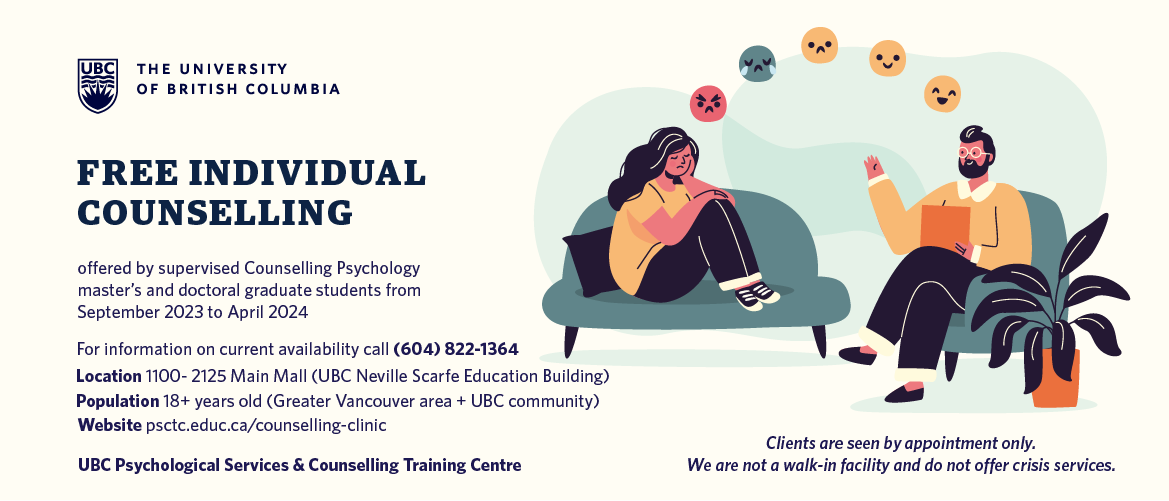From anxiety to empowerment: how Individual Counselling Toronto inspires hope and confidence
Secret Insights Into Mental Therapy for Teen Minds: Supporting Emotional Intelligence
Mental therapy for young adults offers one-of-a-kind obstacles and chances. Teenagers experience significant psychological complexity as their minds establish. Supporting psychological intelligence ends up being crucial in this scenario. Therapeutic approaches like Cognitive Behavioral Therapy and Dialectical Actions Therapy deal valuable tools. These approaches not only foster self-awareness yet also improve compassion. Understanding just how these strategies influence individual development can reveal crucial understandings right into the mental health of young minds. What lies at the intersection of therapy and emotional advancement?
Recognizing the Adolescent Mind: Development and Emotional Complexity
The teen brain is a dynamic landscape, characterized by substantial developing modifications that shape psychological feedbacks and behaviors. During teenage years, the prefrontal cortex, responsible for decision-making and impulse control, undergoes important maturation. Concurrently, the limbic system, which regulates emotions, comes to be more energetic, causing increased emotional experiences. This imbalance can cause intense state of mind swings and spontaneous activities, as the emotional center often outweighes logical thought.
Neurotransmitters like dopamine play a vital role in this phase, influencing satisfaction and reward-seeking actions. As teenagers browse social interactions and identity development, their brains are wired to prioritize peer acceptance and psychological experiences. This period of quick growth is vital for creating strength and flexibility, although it can also lead to difficulties in psychological health. Recognizing these modifications is essential for moms and dads, teachers, and psychological wellness professionals as they seek to support teenagers via this complicated developing stage.
The Significance of Emotional Knowledge in Adolescents
Acknowledging the significance of psychological knowledge during adolescence is crucial, as it lays the structure for reliable communication, empathy, and self-regulation. Teenagers are maneuvering a complicated developmental phase defined by fluctuating emotions and social dynamics. Individual Counselling Toronto. Psychological knowledge equips them with the capability to recognize and manage their sensations while likewise recognizing and responding to the emotions of others. This skillset promotes healthier partnerships, lowers conflict, and improves collaboration among peers
Additionally, emotional intelligence sustains academic success by promoting durability and versatility in the face of difficulties. As young adults discover to manage stress and problems, they develop a more powerful sense of self-worth and identity. Cultivating psychological intelligence throughout these developmental years can lead to lasting advantages, consisting of improved mental wellness and health. Inevitably, focusing on emotional knowledge in adolescents is essential for their overall advancement and future interpersonal effectiveness.
Efficient Healing Methods for Teenagers
While different therapeutic approaches exist, selecting the most reliable methods for teens needs an understanding of their special developing needs. Cognitive Behavior Modification (CBT) is commonly favored for its structured approach, aiding teens determine and change unfavorable thought patterns. Dialectical Actions Therapy (DBT) is one more reliable approach, especially for those battling with emotional regulation, as it combines individual therapy with skills training in mindfulness and social effectiveness.
Additionally, art and play treatments supply innovative electrical outlets for self-expression, making therapy much more available for those that may discover verbal communication challenging. Individual Counselling Services. Team therapy setups can also help with peer links, allowing teenagers to share experiences in a supportive atmosphere. Incorporating family members therapy can improve interaction and understanding within the family members device, resolving dynamics that may add to the teen's emotional struggles. Ultimately, the efficiency of these techniques exists in their adaptability to private situations and needs
Structure Resilience Through Mental Therapy
Building strength with psychological therapy is essential for teenagers facing different life difficulties, as it furnishes them with coping strategies and emotional tools needed to steer through hardship. Mental therapy gives a structured setting where teens can explore their ideas and sensations, assisting in a much deeper understanding of themselves. Techniques such as cognitive-behavioral treatment (CBT) motivate teens to identify adverse thought patterns and change them with constructive ones, fostering a durable attitude. In addition, mindfulness practices integrated into therapy can assist young adults continue to be based during stressful circumstances, improving their ability to cope. The skills discovered via mental therapy encourage teenagers to my site approach obstacles with confidence, allowing them to jump back from troubles. As they create durability, they come to be extra experienced at handling future difficulties, ultimately contributing to their emotional health and individual development. This structure of strength is crucial for maneuvering the intricacies of teenage years and getting ready for adulthood.
Encouraging Open Interaction and Helpful Relationships
Just how can open up communication and encouraging connections boost a teenager's mental wellness? Establishing a culture of open dialogue fosters trust and emotional safety, making it possible for teenagers to reveal their ideas and feelings without concern of judgment (Individual Counselling Toronto). This assistance helps them browse the intricacies of teenage years, promoting strength against tension and anxiety
Helpful partnerships, whether with peers, parents, or advisors, play an essential role in a teen's growth. They give a network of encouragement and understanding, which is crucial during tough times. When teenagers really feel listened to and valued, they are more probable to create healthy and balanced coping systems and emotional intelligence.
When necessary, encouraging open communication also empowers young adults to verbalize their needs and seek help. This proactive approach can significantly reduce sensations of isolation and anguish. Overall, nurturing these links gears up teenagers with basic devices for psychological regulation and individual growth, ultimately improving their mental wellness.
Regularly Asked Inquiries
Just How Can Parents Identify When Their Teen Demands Treatment?
Parents can recognize their teenager's demand for treatment by observing substantial changes in habits, mood changes, withdrawal from social tasks, decreasing read review scholastic efficiency, boosted useful link impatience, and expressions of sadness or anxiousness that linger over time.
What Function Does Social Network Play in Adolescent Mental Wellness?
Social media significantly influences adolescent psychological health and wellness by shaping self-esteem, promoting links, and revealing individuals to cyberbullying. Its effect can be both unfavorable and favorable, depending on usage patterns and the nature of online communications.
Exist Specific Treatments Much Better Fit for Ladies or kids?

Exactly How Can Schools Assistance Mental Wellness Initiatives for Students?
Institutions can sustain mental health campaigns by carrying out counseling services, advertising social-emotional learning programs, offering psychological health and wellness sources, cultivating a supportive setting, and using workshops that enlighten pupils on coping methods and emotional strength.

What Are Common Mistaken Beliefs Concerning Teen Treatment?
Common misunderstandings concerning teenage treatment include the idea that it is only for severe problems, that it suggests weakness, or that teens lack the ability to involve. These misconceptions can prevent accessibility to crucial mental health and wellness support.
Mental therapy for young adults presents distinct challenges and possibilities. Therapeutic techniques like Cognitive Behavior Therapy and Dialectical Habits Therapy deal useful devices. Additionally, art and play therapies offer creative outlets for self-expression, making therapy much more easily accessible for those that may discover verbal interaction testing. Including family members treatment can boost communication and understanding within the household unit, dealing with characteristics that may contribute to the teenager's emotional battles. Building strength through psychological treatment is vital for young adults dealing with different life difficulties, as it furnishes them with coping techniques and emotional devices needed to steer with adversity.